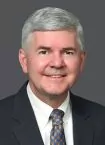Keywords: DHS, immigrant workers, H-1B, employment authorization
On May 6, 2014, the US Department of Homeland Security (DHS) announced the publication of two proposed rules relating to highly skilled immigrant workers. The first would extend employment authorization to the spouses of certain specialty occupation (H-1B) workers; the second would enhance opportunities for certain groups of highly skilled workers to remain in the United States.
Employment Authorization for Dependent Spouses of Certain H-1B Workers
US employers sponsor highly skilled workers for H-1B visas, primarily for science, technology, engineering and mathematics (STEM) occupations. However, under current regulations, employment authorization is not available for the dependent spouses of H-1B employees. The rule proposed by DHS would allow dependent spouses with H-4 visas to request work authorization as long as the H-1B employee has started the process of seeking lawful permanent residence based on employment. The rule would apply to the H-4 dependent spouse of an H-1B worker who:
- Is the beneficiary of an approved Form I-140, Immigrant Petition for Alien Worker; or
- Has been granted an extension of stay in the United States under the American Competitiveness in the 21st Century Act of 2000 (AC21). AC21 permits H-1B workers seeking lawful permanent residence to work and remain in the United States beyond the statutory six-year limit.
Enhanced Opportunities for Highly-Skilled Workers to Remain in the United States
Current regulations allow for automatic employment extensions of up to 240 days for H-1B visa holders and other employment-based nonimmigrants for whom an extension of stay application is timely filed. The proposed rule would extend the same benefit to those in visa categories created after the existing rules were promulgated.
The rule would affect workers in specialty occupation nonimmigrant classifications for professionals from Chile and Singapore (H-1B1) and Australia (E-3), as well as Commonwealth of the Northern Mariana Island-Only Transitional Workers (CW-1). The rule would also add H-1B1 and E-3 visa holders to the list of aliens authorized for employment incident to status, i.e., they do not have to separately apply to DHS for employment authorization.
Finally, the proposed rule would expand the current list of evidentiary criteria for employment-based first preference (EB-1) outstanding professors and researchers to allow the submission of evidence comparable to the forms of evidence already listed in the regulations for other employment-based immigrant categories.
On the Horizon
DHS Deputy Secretary Alejandro Mayorkas estimated that 97,000 people could benefit from the H-4 work authorization rule in the first year, and as many as 30,000 per year thereafter. While some groups—including FWD, a business group founded by Facebook CEO Mark Zuckerberg—have applauded the rules, critics have claimed that the government should focus on helping US citizens obtain employment. The rules announced on Tuesday will be published in the Federal Register for public comment and all comments will be considered before final rules will become effective.
Pending legislation that was passed by the Senate and introduced in the House would provide employment authorization for H-4 dependent spouses of H-1B workers. The Senate provision would apply only to nationals of countries that provide reciprocal employment privileges to spouses of US citizens working abroad. The House bill contains no such limitation.
Learn more about our Employment & Benefits practice.
Originally published May 9, 2014
Visit us at mayerbrown.com
Mayer Brown is a global legal services provider comprising legal practices that are separate entities (the "Mayer Brown Practices"). The Mayer Brown Practices are: Mayer Brown LLP and Mayer Brown Europe – Brussels LLP, both limited liability partnerships established in Illinois USA; Mayer Brown International LLP, a limited liability partnership incorporated in England and Wales (authorized and regulated by the Solicitors Regulation Authority and registered in England and Wales number OC 303359); Mayer Brown, a SELAS established in France; Mayer Brown JSM, a Hong Kong partnership and its associated entities in Asia; and Tauil & Chequer Advogados, a Brazilian law partnership with which Mayer Brown is associated. "Mayer Brown" and the Mayer Brown logo are the trademarks of the Mayer Brown Practices in their respective jurisdictions.
© Copyright 2014. The Mayer Brown Practices. All rights reserved.
This Mayer Brown article provides information and comments on legal issues and developments of interest. The foregoing is not a comprehensive treatment of the subject matter covered and is not intended to provide legal advice. Readers should seek specific legal advice before taking any action with respect to the matters discussed herein.

